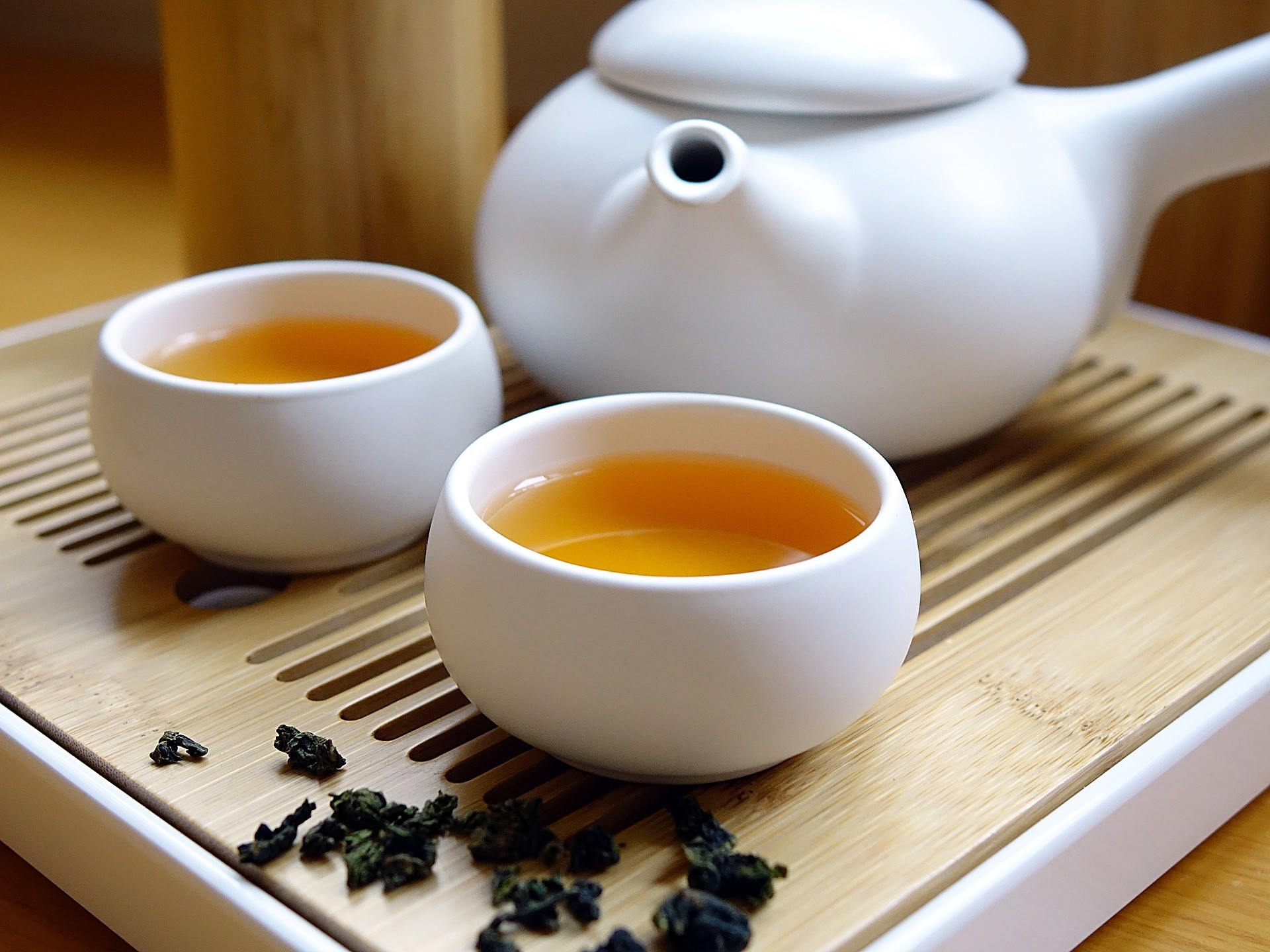The Mindful Power of Tea: How Simple Rituals Can Boost Your Brain Health
Crafted by: Jonathan Chew

Preparing and drinking tea may seem routine, but it carries a more profound significance for many. Tea can symbolize calm, mindfulness, and connection, offering a moment to slow down and reflect. Steeping, stirring, and sipping can serve as a way to center oneself and promote peace.
Incorporating tea into a daily routine, such as starting the day with a cup of a favorite blend, can provide not only physical nourishment but also mental clarity. This ritual fosters mindfulness, helping to create a calm, intentional approach to the day ahead.
Tea as a Bridge Between Nutrition and Mindfulness
While nutrition often focuses on what we eat, it’s also important to consider how we eat. Nutritional practitioners highlight the connection between the food we consume and the brain’s health, but it also emphasize the mindset we bring to eating. The concept of body intelligence—the ability to tune in to your body’s signals and needs—and mindfulness can transform the simple act of nourishing yourself into a powerful tool for well-being.
Drinking tea can be an especially mindful practice. It involves slowing down, focusing on the sensory experience of the flavors and aromas, and using this quiet time to tune into your body’s needs. This practice cultivates mindfulness, which in turn helps foster a calm and reflective attitude toward eating and life.
Mindful eating encourages us to savor our meals and reflect on why we make confident food choices. By becoming more aware of our motivations and how our food makes us feel, we can make better choices that support our overall health. Tea drinking, when done mindfully, is a perfect way to connect with this practice of body intelligence.
Tea’s Nutritional Powerhouses
Beyond mindfulness, tea offers an impressive range of neuroprotective benefits. Packed with antioxidants, nutrients, and hydration, tea can be a powerful tool for boosting brain health. Different teas contain various beneficial compounds, from calming neurotransmitters to anti-inflammatory ingredients, all of which improve mental clarity, reduce stress, and even enhance sleep.
Here’s a deeper look into some of the most brain-boosting teas and their health benefits:
1. Green Tea: Green tea is known for its rich content of L-theanine, an amino acid that promotes relaxation by enhancing alpha brain waves (the brain’s “relaxation” waves). L-theanine decreases excitatory chemicals in the brain while boosting calming neurotransmitters like GABA. Despite caffeine, green tea provides a balanced way to stay alert while reducing stress levels. It’s also packed with anti-cancer, antiviral, anti-obesity, and antibacterial antioxidants. For those who want an even more potent dose of green tea’s benefits, matcha (a powdered form of green tea) is a great option that can easily be added to smoothies or lattes.
2. Chamomile Tea: Chamomile, derived from the daisy-like flowers of the Asteraceae family, has long been used as a natural remedy to alleviate anxiety and promote better sleep. Chamomile tea’s calming effects are supported by numerous studies, making it a great evening drink for those looking to wind down. However, those who are pregnant or trying to conceive should consult their doctors before consuming it due to potential interactions.
3. Lavender Tea: Lavender is renowned for reducing stress and anxiety while promoting better sleep. Studies show that lavender’s essential oils can boost dopamine production and lower cortisol levels, the hormone associated with stress. Lavender’s anti-inflammatory properties also help support brain health. A lavender tisane, made with dried lavender, hot water, and a sprig of fresh mint or lemon, can provide a soothing break in your day.
4. Turmeric Tea: Turmeric tea, thanks to its active ingredient, curcumin, is a potent brain-boosting beverage. Curcumin has antioxidant and anti-inflammatory properties that support neuroprotection, improve attention, and enhance memory. Studies have shown curcumin can improve cognitive function and even combat age-related cognitive decline. Add freshly ground black pepper to increase curcumin absorption when preparing turmeric tea. Golden Milk, a popular drink made with turmeric, milk, and spices, offers a delicious way to enjoy this powerful ingredient.

5. Lemon Balm: Tea Lemon balm, a member of the mint family, is known for its calming effects. It interacts with several neurotransmitters in the brain, including GABA, serotonin, and acetylcholine, helping to reduce stress and anxiety. Its anti-inflammatory and antioxidant properties also protect neurons against oxidative stress, making it a great addition to a brain-healthy diet.
Tea Rituals Across the Globe: A Broader Perspective
While tea’s benefits are well-known in Western cultures, its significance spans the globe. In Africa, tea is often seen as a communal practice, bringing people together in moments of shared reflection. Similarly, in East Asia, tea ceremonies are deeply ingrained in cultural traditions, emphasizing mindfulness, balance, and respect. In South Asia, turmeric tea (or golden milk) is a staple for its medicinal benefits. These diverse global practices remind us that tea is not just a drink—it’s a cultural symbol of health, community, and peace.
In countries like Japan and China, tea drinking is tied to longevity. The traditional Japanese tea ceremony, chanoyu, reflects the values of simplicity, mindfulness, and respect. In contrast, green tea has long been praised for its association with heart health, mental clarity, and extended life expectancy. Meanwhile, in India, chai, a spiced tea often brewed with turmeric, ginger, and cinnamon, is deeply rooted in Ayurvedic medicine, aimed at boosting immunity and reducing inflammation.

In Africa, Rooibos tea from South Africa is another brain-healthy beverage. Rich in antioxidants and caffeine-free, this tea has been used for generations to calm nerves, aid digestion, and promote overall well-being.
By drawing on these diverse tea rituals, we can expand our appreciation of tea as both a nutritional and mindful practice. The global perspective on tea highlights how simple habits, deeply rooted in culture, can be harnessed for better health and wellness.
Conclusion:
Tea offers us a moment to slow down, breathe, and find calm in a world that constantly pushes us to move faster and do more. Whether you’re drinking a calming lavender tisane in the evening or starting your morning with a brain-boosting cup of green tea, tea rituals provide a way to reconnect with yourself and tap into your body’s wisdom.
By integrating tea into your daily routine, you nourish your body with antioxidants and neuroprotective compounds and cultivate a sense of tutu, bringing mindfulness and calm into your life. The next time you prepare a cup of tea, take a moment to steep, stir, and sip slowly. It may be a small act, but its impact on your well-being can be profound.

